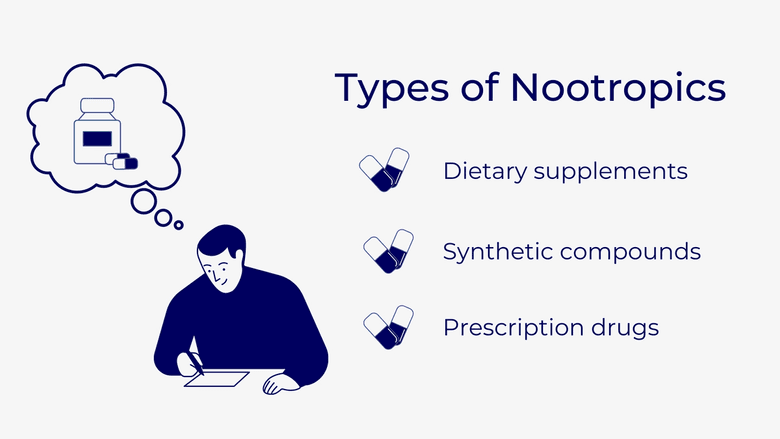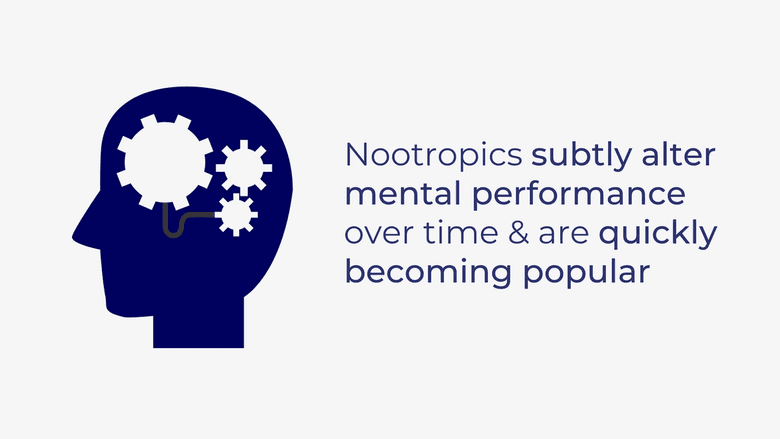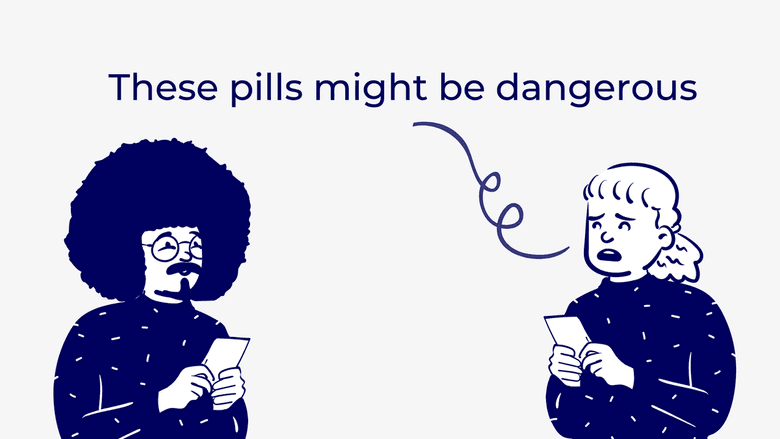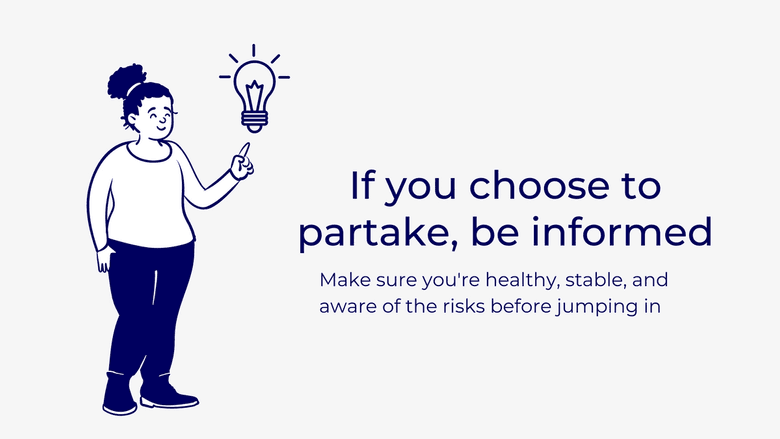The Dangers of Biohacking: Nootropics in Silicon Valley
Some engineers turn to supplements to optimize productive output.
With the competitive environments and stressful workloads of many Silicon Valley tech firms, it’s no wonder that many employees are trying to find ways to get ahead.
Some are even looking past standard energy-boosters like coffee or Red Bull and trying out non-traditional remedies in hopes of improving their cognitive function.
Widely known as nootropics, these "smart drugs" can range from prescription medications like Adderall to herbs like ginseng. These supplements and drugs help many workaholics participate in biohacking, or taking measures to optimize body performance and brain function.
While many users laud the benefits of nootropics, others question their effectiveness and safety.
What are Nootropics?

According to WebMD, the term nootropics refers to any natural or synthetic substance thought to have a positive effect on mental ability. In healthy people, these brain boosters have the potential to enhance short term memory, focus, creativity, and more.
They generally fall into one of the following categories:
- dietary supplements
- synthetic compounds
- prescription drugs
Dietary supplements are natural nootropics. They're often considered relatively low-risk, including L-theanine, which can be combined with caffeine to improve multitasking, or Bacopa monnieri, an ayurvedic herb believed to help the brain process information faster. Other popular nootropic supplements are rhodiola rosea, ginkgo biloba, panax ginseng, and the amino acid creatine.
Synthetic compounds can be purchased online or over-the-counter in the US but are only distributed through prescription in other countries. One example is piracetam, a drug that’s commonly used in those with dementia or Alzheimer’s and is thought to improve learning and memory.
Prescription drugs like Ritalin or Adderall are also found to be very effective in improving focus in the short-term, but they’re not recommended for those without ADHD. Most of these drugs contain amphetamines, which makes them highly addictive. In addition, many have also experimented with microdosing psychedelics like LSD to improve mood and creativity.
How are Nootropics Used?

Nootropics can be taken by anyone trying to crank out hours of work day after day (i.e. college students), but they’re especially well-known in the tech community.
In such a high-pressure space, cognitive impairment is a popular concern. Some doctors who specialize in nootropics claim to have clients from Facebook, Google and Uber, as well as other companies in Silicon Valley.
While the media often compares nootropics to the pill that changes Bradley Cooper’s life in the movie Limitless, the reality isn’t quite that dramatic. Rather, the effects of most nootropics tend to be more subtle and gradual.
Dave Asprey, founder of the biohacking company Bulletproof, warned,
“When you first start taking nootropics, sometimes you’ll feel like nothing is happening.”
He said that the improvements to your mental performance will feel so natural that you can’t even notice them.
However, most users take supplements regularly and notice the cognitive enhancement over time. Bulletproof sells capsules called Smart Mode, Zen Mode, NeuroMaster, among others, that claim to help get users in the right mindset for their task. This allows customers to easily incorporate these ingredients into their diets in the recommended dosage.
With plenty of users eager to get their hands on brain-boosting snacks and supplements, nootropics had a significant global market value of nearly $2 billion as of 2018, and is estimated to reach $5.32 billion by 2026, according to GlobeNewsWire.
Some people take nootropics parallel to lifestyle changes intended to boost focus and productivity as well.
Geoffrey Woo, co-founder of the biohacking company Nootrobox (currently HVMN), talked about his startup’s company-wide 36-hour fast. This weekly initiative aims to put employees into a state of ketosis, where their bodies have run out of carbohydrates and are instead burning fat. Many say this method of fasting makes them more focused and alert.
What Are the Dangers of Using Nootropics?

Because most nootropics are considered dietary supplements, they don’t need to be approved by the FDA.
This lack of regulation has raised safety concerns among many observers, especially because users often create their daily concoction by mixing several different ingredients together. Such concoctions could have adverse effects on cognition and brain health that we aren't yet aware of.
Very little research has been done about nootropic use in the long-term.
However, many individuals report negative side effects either during use or after stopping. In an article on the drug and alcohol addiction website The Fix, a woman told about how her son developed anxiety, depression, and eventually withdrawal symptoms after taking excessive doses of nootropics to improve focus and fight fatigue. She said that Tianeptine, an ingredient of the supplements he was taking, “can cause feelings of euphoria similar to the effects of opioids,” and can also lead to similar withdrawal symptoms later on. However, because she was convinced that the cognitive enhancers were all-natural, a long time passed before she knew something was wrong.
The nootropics subreddit also brings to light many risks of these seemingly harmless supplements. One former medical student shared a horror story of their experience taking Huperzine A with their racetam regimen, both of which can be purchased easily in the US.
However, the combination led to intense side effects.
“For 2-3 months I was very foggy, fevers, vomiting several times per day, night sweats, shaking all the time, feeling terrible,” they said.
Other supplements have been associated with more mild, but still unpleasant, symptoms.
“Sulbutiamine gives a pretty nice noticeable boost to energy but then results in a splitting headache most of the time I've used it,” said one user. Another redditor testified to Sulbutiamine’s withdrawal symptoms, saying they’re “just as bad as crack.”
Even Modafinil (or Provigil), a prescription drug said to be safer than other stimulants, has its risks. One user experienced an unnervingly faster inner monologue and heartache, despite having a normal heart rate and blood pressure. Other common side effects of nootropics include anxiety, depression, and even long-term harm to the brain, in the case of Ritalin in particular.
So Is It Worth It?

Despite the risks, many ambitious workers continue to experiment with nootropics, intrigued by the futuristic idea of unlocking the best version of themselves. Some even believe that biohacking will eventually progress to allow us to defy even mortality.
“We are all trained as children that we are going to die,” said Woo, “but technology is reaching a point where death can be treated like any illness or sickness, and aging will be considered a disease.”
Cognitive decline is something most of us wish to avoid. Although this may sound like an enticing movement to join, it’s important to be aware of the risks of nootropics and to use them with caution. Pay attention to the correct dosage, and don’t expect the pills to magically fix all of your problems.
According to Asprey, nootropics work best in healthy individuals.
“Before you try nootropics, I suggest you start with the basics: get rid of the things in your diet and life that reduce cognitive performance first,” he said.
The information provided herein is for general informational purposes only and is not intended to provide tax, legal, or investment advice and should not be construed as an offer to sell, a solicitation of an offer to buy, or a recommendation of any security by Candor, its employees and affiliates, or any third-party. Any expressions of opinion or assumptions are for illustrative purposes only and are subject to change without notice. Past performance is not a guarantee of future results and the opinions presented herein should not be viewed as an indicator of future performance. Investing in securities involves risk. Loss of principal is possible.
Third-party data has been obtained from sources we believe to be reliable; however, its accuracy, completeness, or reliability cannot be guaranteed. Candor does not receive compensation to promote or discuss any particular Company; however, Candor, its employees and affiliates, and/or its clients may hold positions in securities of the Companies discussed.
